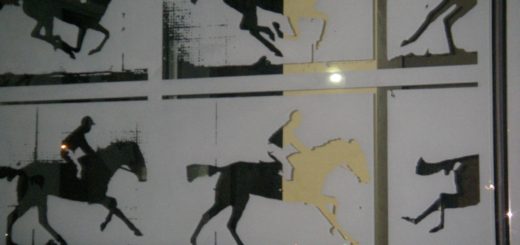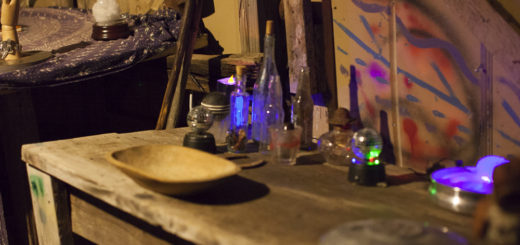Hanks: Fantastic Fest offers quick trip to other side of world
By Anna Hanks – Special to the American-Statesman
Posted: 1:59 p.m. Wednesday, Sept. 30, 2015
When I was a senior at the University of Texas at Austin, my childhood friend Brian Hollis had already graduated from Southwestern University and had received a Fulbright grant to study Francophone African theater in the Cote d’Ivoire (aka, the Ivory Coast). I had never even heard of the African country of Cote d’Ivoire before.
When telling me the good news about his Fulbright, Brian asked over the phone, “You are going to come and visit me in Africa, aren’t you?” Of course I said yes!
Going to Africa as a pampered UT undergraduate was shocking.
In the early 90s, Cote d’Ivoire was an independent country that still bore the hallmarks of its French colonial past. It was then one of the more stable and prosperous African countries. In 1992 I was told that Cote d’Ivoire was where refugees came to when they fled war and poverty in other counties in Africa.
Flying into the Ivorian economic capital of Abidjan, I saw the high-rise buildings from the air, and thought, “oh, everything looks fine.” I soon learned that things were not find by my Austin standards. Walking around downtown Abidjan, I found that the sealed modern skyscrapers were empty, partly because no one could afford to air condition them. This meant walking around the sidewalks of downtown Abidjan was like continuously walking around someone’s living room, with people packed as closely together as the sea of blankets at the Austin City Limits Music Festival.
I ate at a food stand where we brought home our delicious food in tupperware, because standard procedure there was wiping the plate between customers. We rode the cheap (for us) bush taxi’s and local buses, where I let any local child who desired run their small hands through my exotic-in-Africa bleached blonde hair.
We also sampled the way that the expat population lived, going to the U.S. Embassy Christmas party in Abidjan, getting professional massages from a French expat, and going to the best Ethiopian restaurant I’ll likely ever eat in.
Our little group also went to Ghana, the country next to Cote d’Ivoire.
In contrast to Cote d’Ivoire, Ghana had been part of the British Empire and also still had many traces of that colonial past. The signs were in English and the food was British-inspired, and we didn’t enjoy the food nearly as much as what we’d eaten on the streets in Cote d’Ivoire. While in Ghana we were lucky enough to be able to visit the capital city of Accra, before taking a trip on local buses down to the coastal spot where the slave ships had left Africa with their tragic human cargo.
My long-ago African travels are why I was so interested in watching the Ghanian film “Coz Ov Moni 2” at Fantastic Fest this year. I found the film to be a sort of art naïve opera, telling the story of the daily lives of two African dudes in modern Ghana.
I was shocked to run into M3NSA Ansah, one of the “dudes” from “Coz Ov Moni 2” (and the film’s co-director) outside of the Alamo Drafthouse Theater on South Lamar, where Fantastic Fest was going on. Ansah was himself surprised that I had been to Ghana.
In our quick curbside chat, Ansah confirmed that his film had been shot mostly in the Ghanian capitol of Accra in and around the houses of people he knew, as I had assumed when watching the film. He also told me that I could watch the first film in the series for free on the Internet, and confirmed that the films were kind of a big deal in Ghana. I had no clue. African pop culture doesn’t get much coverage in the states.
In many ways Africa is far less distant than it was in 1992, when there was no Internet, there were few guidebooks to West Africa, and my only real preparation for going to a mostly unknown place was a series of shots at the University of Texas health center.
Still Africa isn’t a place that very many Americans take the opportunity to think about, talk about or visit, except in the context of a fear of Ebola or coverage of wars and famine.
Maybe the world would be a better place if we watched more films from Africa. It’s hard to drop everything and go visiting African capitals on the regular, but movies are one way of understanding what people around the world care about.
Fantastic Fest runs through Oct. 1, and is also playing the South African film “Hard to Get” by South African film director Zee Ntuli.
Hanks blogs about pop culture at annainaustin.com.
PDF of original story Fantastic Fest offers quick trip
(Archive post added May 5, 2016)






















